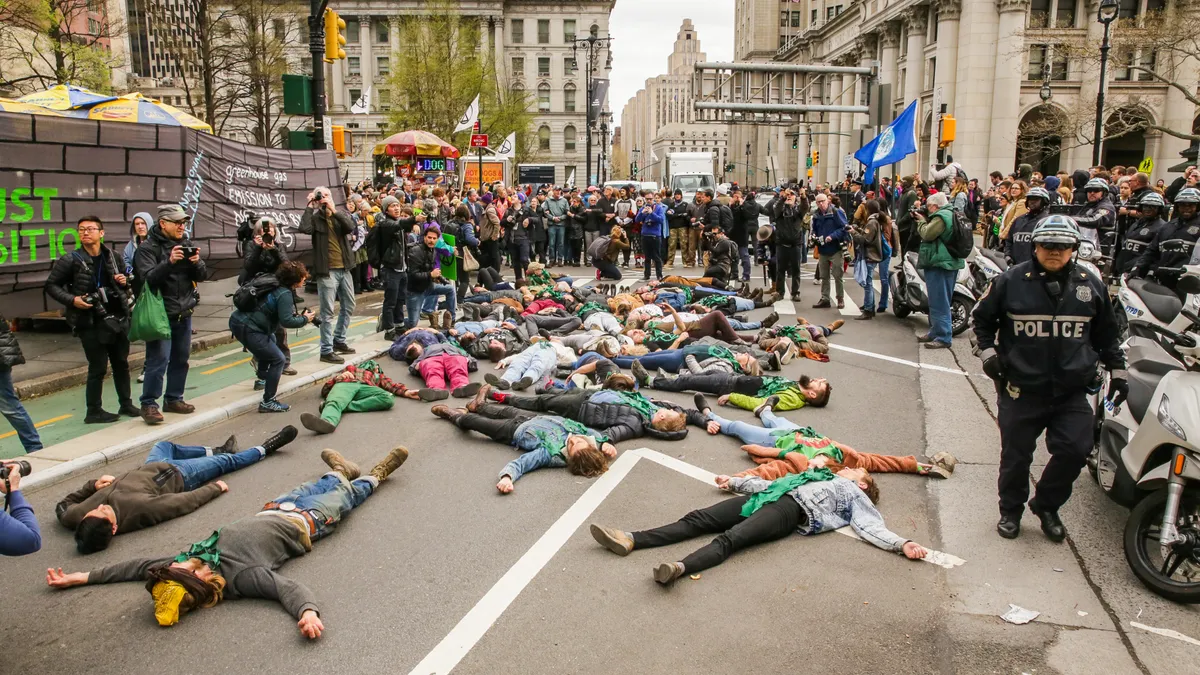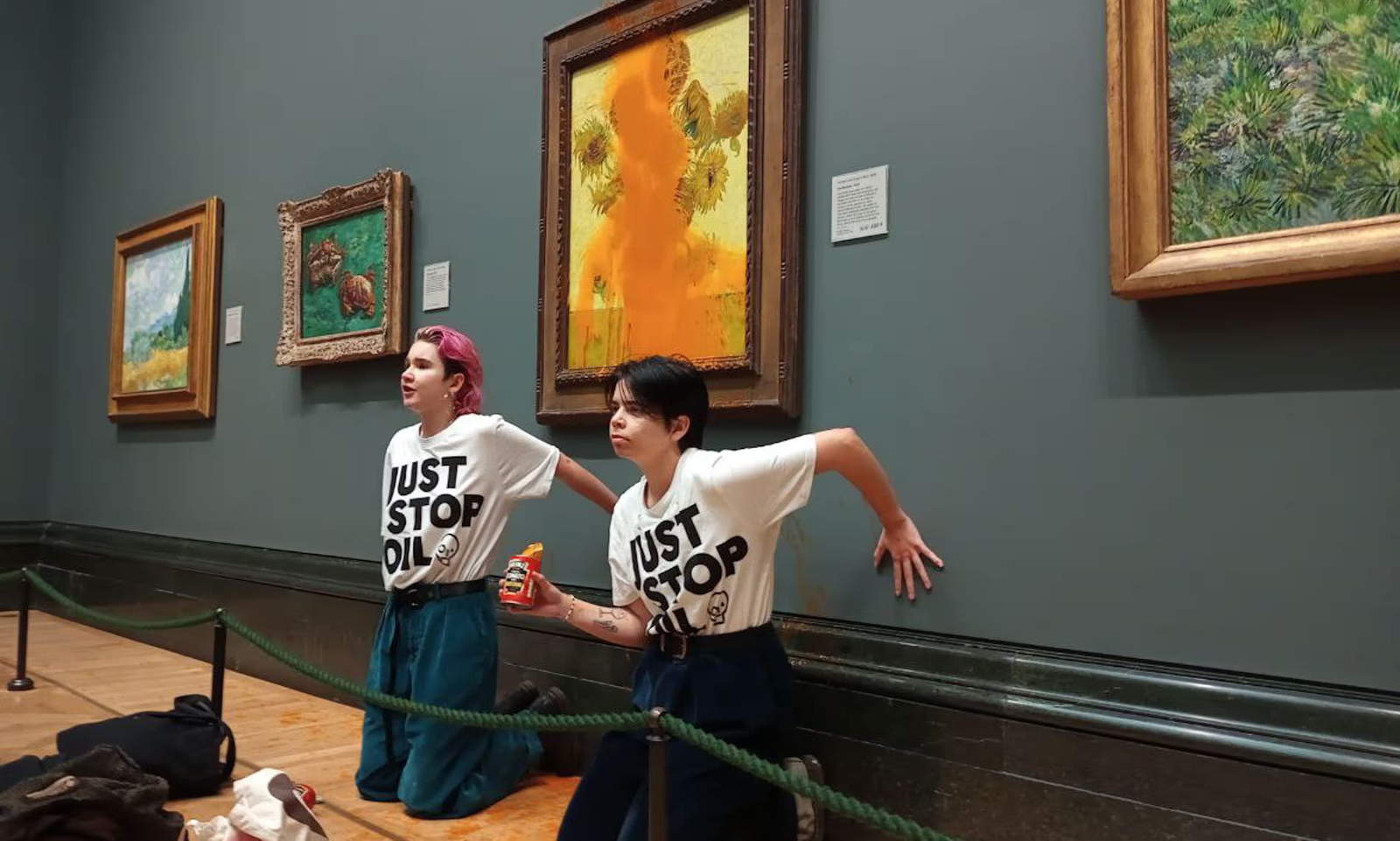AGENDA
- Ecosabotage
- Tuesday's class: review
_________________________
Module 6: we've been talking about Action/Inaction
- Lifestyle choices .... the just one person problem
- Politics.... voting, running for office .... conservatives vs. liberals
- Now: Activism, forms of protest
Focus: climate change activism and protest
Activists believe we are not doing nearly enough
- Under Paris Agreement nations have made some progress, but not enough
- We are headed for greater than 2 deg centigrade temperature rise and all the resulting sea level rise, etc.
- They are pushing for faster change through protest
LEGAL PROTESTS
 |
| climate protests |
ILLEGAL PROTESTS
 |
| Xtinction Rebellion stopping traffic |
 |
| Just Stop Oil attacks on art |
The illegal protests:
- outrageous, disruptive, impolite
- but still basically peaceful
- no harm to property or persons
_________________________
Enter....
Malm asks:
- Are the illegal protesters going far enough?
- If climate change is going to cause vast death and destruction, why aren't protesters doing more?
- Why don't they move on to ECOSABOTAGE?
_________________________
What is ECOSABOTAGE?
- Direct action--it stops some of the environmental harm that protesters want to prevent
- throwing soup at a painting is not direct action in this sense
- Involves property destruction
- But no violence against persons (Malm: so not terrorism)
Example of climate-related ecosabotage
deflating tires in Boston. WATCH (2 minutes)
_________________________
 |
We could take a cautious approach here...
- Does everyone agree that ecosabotage is wrong? (show of hands)
- If we're all sure it's wrong, then the challenge is to explain WHY it's wrong -- there are many possibilities
_________________________
MALM'S ARGUMENTS
Argument about past protest movements (Malm How to Blow Up a Pipeline )
- Property crimes have been a tactic of many successful protest movements (see below)
- The climate change movement is not different from these movements--not less important or less urgent, for example. THEREFORE
- Climate change activists should not limit themselves to peaceful protest.
Examples of protest movements involving property destruction:
- Suffragetttes (p. 41): London, beginning of 20th century--used property crimes as tactic to win vote for women (they split from the Suffragists, who used peaceful means)-- breaking windows, arson, throwing pepper at people. Came to an end with WWI.
- Abolitionism in the US
- Civil Rights movement--Martin Luther King vs. Malcolm X, peaceful protest plus riots
- Gandhi's movement for Indian independence from Britain--rejected violence against the British, but not against fighting with the British in WWI (p. 43)
- ANC and Nelson Mandela fighting apartheid in South Africa--mostly peaceful, but also "Spear of the Nation"
Discussion
- Assume for the sake of argument that property destruction HAS been a justifiable and effective tool of some past protest movements
- Why is it the wrong tool in the case of the climate change activism?
_________________________
OK, but what about blowing up pipelines?
Does Malm really defend doing this? Yes.
Talk in Bristol, England, 2021. WATCH (18 minutes)
Arguments in the video, summarized:
- Pipelines are killing people, so destroying them is death-prevention.
- Destroying pipelines is like defusing a bomb set to explode in an apartment building.
- Pipelines are property, not persons.
- It won't solve the problem, but will rachet up pressure on the oil industry to solve the problem. THEREFORE
- Attacking pipelines is justifiable.
_________________________-
Discussion
- Tone of Malm's book is desperation--we have tried everything and nobody's doing enough.
- Suppose you had a chance to calm him down. What would you say?
- Are we doing enough?
- Are there other ways to hasten change besides blowing up pipelines?


No comments:
Post a Comment
SIGN with your first name.